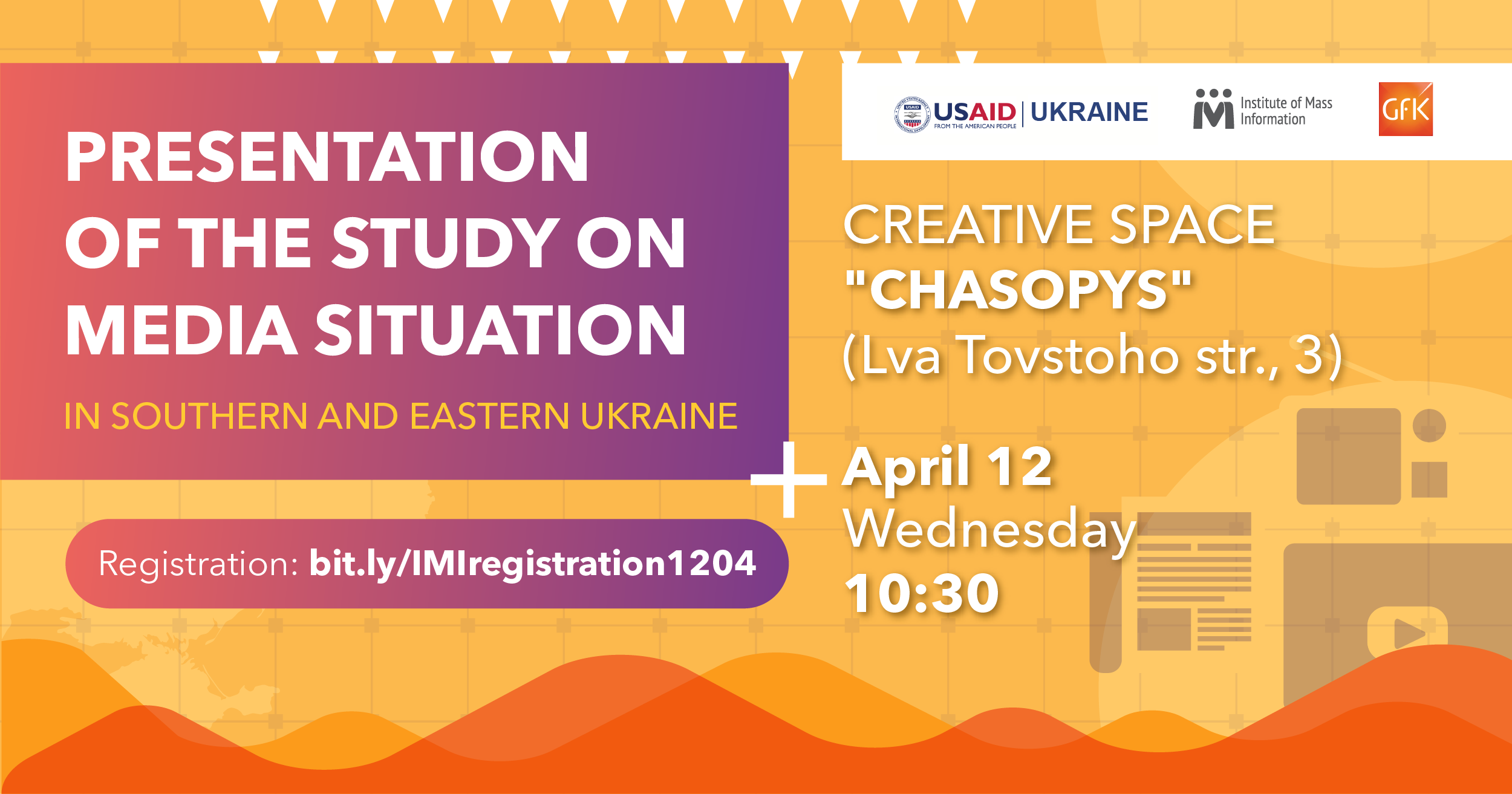Where residents of the South and of the East of Ukraine, including on the occupied territories, get news, whether they notice dzhynsa and propaganda, what information they lack, and what information is predominant in local media — these and other issues will be presented in the joint research of the Institute of Mass Information and GfK Ukraine.
April 12, Wednesday
10.30 a.m.
Creative Space "Chasopys" (Lva Tolstoho Street 3)
Keynote speakers:
- Oren Murphy, USAID/OTI, Ukraine Country Representative;
- Oksana Romaniuk, Institute of Mass Information, executive director;
- Olena Holub, Institute of Mass Information, media expert;
- Tetiana Kostiuchenko, Senior Researcher, GfK Ukraine.
Accreditation to the event is conducted online or by phone: 063-278-76-45.
The experts of the Institute of Mass Information monitored nine local media outlets (two TV channels, three printed editions and four online media outlets) in every of the eight oblasts in the South and the East of Ukraine (Dnipro, Zaporizhzhia, Kharkiv, Odesa, Mykolayiv, Kherson, Severodonetsk, Mariupol, and Kramatorsk), as to what topics local media address most often, how the ATO is covered, how many materials are covertly commissioned advertising, or dzhynsa, what sources of information journalists use most often.
GfK Ukraine studied where exactly residents of the East and the South of Ukraine get news, what topics are of most interest to them, and what information in media outlets they lack, who is to blame for the war on Donbas and what foreign policy Ukraine should adhere to, and other issues.
The research was conducted with the support of the Ukraine Confidence Building Initiative (UCBI) funded by the United States Agency for International Development (USAID) in January-March of 2017.

